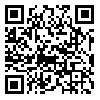Kharazmi university , kia.ranjbar@khu.ac.ir
Abstract: (2971 Views)
Introduction: The purpose of the present study is to introduce and examine several genes that are related to people's sports performance and can be effective in their selection and selection in their favorite sports field. Various factors of physical fitness and training ability have been investigated along with the risk of sports injury and mental fitness of athletes.
Findings: The sports performance of people and the monitoring of sports exercises have been influenced by the vast genetic map and environmental interventions. In the present study, the performance of the aerobic system with the ACE gene and its different alleles, the strength and power performance of people with the ACTN3 gene, and the risk of injury of people with different genes such as COL1A1, COL5A1, Tenascin (TNC), apolipoprotein E and blood groups were investigated. It is a prediction; also, the trainability and mental preparation of people in the talent search process can be predicted and possibly measured by genetic knowledge. On the other hand, using the knowledge of genetics and genetic profiles of athletes can be useful for detecting genetic and cellular doping and help organizations that work in the prevention of doping, such as WADA.
Conclusion: The combination of genetic knowledge and environmental interventions play an effective role not only in discussing an athlete's talent, but also in monitoring and improving their performance. While genetics can play a significant role, the prediction of sports success based on genetic knowledge has been limited to a specific set of genes. However, developing this knowledge and identifying more genes that can aid in talent identification and exercise monitoring requires further research.
Send email to the article author
| Rights and permissions | |
 |
This work is licensed under a Creative Commons Attribution-NonCommercial 4.0 International License. |


